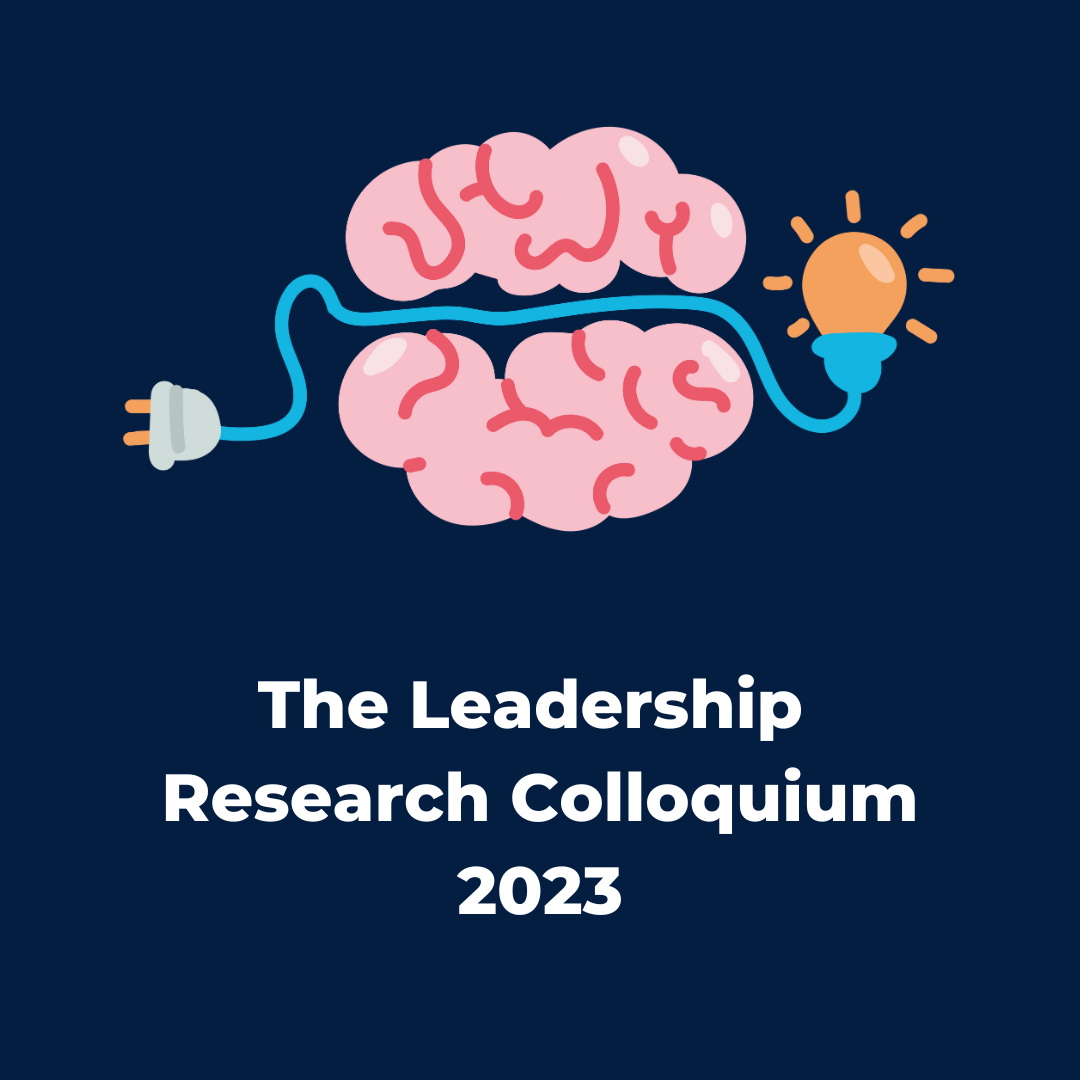November 8, 2023
The Leadership Research Colloquium 2023
The Leadership Research Colloquium provides a forum for leading experts and faculty to present developing, extant and cutting-edge new research as it affects leadership in organizations and in our communities. The colloquium features the work of the recipient of The Center’s prestigious Alvah H. Chapman Jr. Outstanding Dissertation Award and hosts faculty members from other universities.
Topic
What's New In Leadership Research
Come hear two award-winning professors talk about their research on leadership, and what it might mean for you and for society – in an easily digestible format. Are executives really selected mostly from the upper-class? What does that mean for the rest of us? How might you (and organizations) respond to create system recovery after a crisis?
Presenters and Abstracts

Dr. Michelle Lee
Assistant Professor of Strategy and Organizations, Smith School of Business, Queen's University
Title: Privilege and prejudice: Shareholder primacy and the relevance of social class backgrounds for CEO contenders’ selection prospects
Abstract: Prior research has found that contenders with upper-class backgrounds are favored for CEO positions in corporate America over those with lower- and middle-class backgrounds. However, in the decades since the last analysis was conducted, corporate America has undergone significant changes that have institutionalized shareholder primacy as the dominant organizing principle. This presentation examines the implications of these macro-institutional changes, theorizing that the upper-class bias in CEO selection has steadily become amplified since the 1970s.
About: Michelle K. Lee is an Assistant Professor of Strategy and Organizations at the Smith School of Business, Queen's University. Dr. Lee received her Ph.D. in strategic management from the University of Washington. Dr. Lee is the recipient of the 2022 Alvah H. Chapman Jr. Outstanding Dissertation Award. Her dissertation research studies how the social class background of executives influences career outcomes including selection to the chief executive position and the class pay gap. More broadly, her research interests include social class, strategic leadership, shareholder activism, and corporate social responsibility. Her research has been published in the Academy of Management Journal and Journal of Management Inquiry and covered by the Wall Street Journal. Prior to academia, she worked for Deloitte and Mazars in New York City.

Dr. Cynthia Maupin
Assistant Professor of Management, School of Business Administration, University of Mississippi
Title: Event-based Perspectives of Leadership: How can leaders promote recovery after disruptive events?
Abstract: In today’s complex and dynamic work environments, organizations often encounter disruptive events that interrupt on-going operations and must be addressed quickly to prevent financial, operational, and strategic losses. However, the optimal leadership approach to guide organizational recovery—whether to centralize communication and decision-making around a few top-level leaders or decentralize knowledge search and decision-making throughout the organizational system—is often uncertain. This presentation sheds light on this debate by demonstrating how event criticality and event novelty are essential characteristics of disruptive events that drive the optimal leadership response for guiding organizational recovery.
About: Dr. Cynthia Maupin is an Assistant Professor of Management for the School of Business Administration at the University of Mississippi, and she earned her Ph.D. in Industrial-Organizational Psychology from the University of Georgia. Dr. Maupin is the recipient of the 2021 Alvah H. Chapman Jr. Outstanding Dissertation Award.
Her dissertation titled "The Costs and Benefits of Leader-Driven Communication Structures for Promoting Rapid System Recovery after Exogenous Shocks" not only advances leadership science by highlighting the conditions under which leader-driven communication is effective (and ineffective), but also provides actionable recommendations for real-world leaders who are tasked with helping their organizations to recover in the aftermath of a crisis.
Her research investigates the factors that promote effective leadership, leadership development, and teamwork processes, and has been published at outlets including the Journal of Applied Psychology, The Leadership Quarterly, Journal of Management, Organizational Dynamics, Human Relations, Group and Organization Management, Small Group Research, and Industrial and Organizational Psychology Perspectives on Science and Practice.

